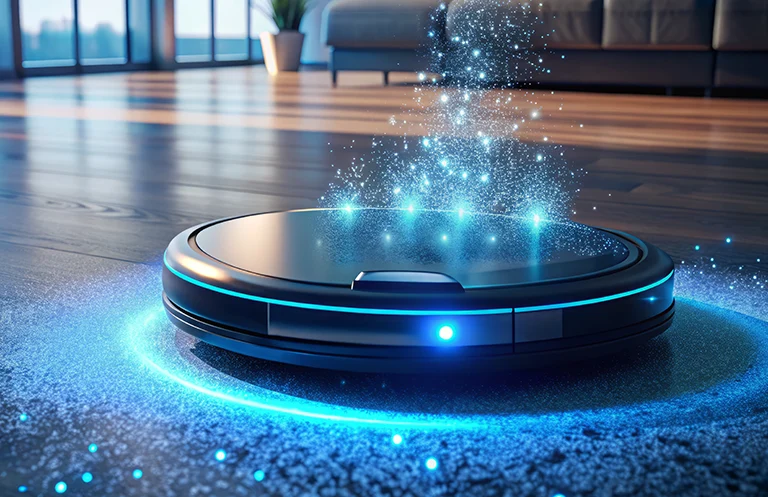The Rise of Nailtop Microcontrollers
Nailtop microcontrollers represent a significant leap forward in the integration of machine learning into tiny, compact devices. These microcontrollers combine the power of traditional microcontrollers with advanced machine learning algorithms, enabling them to process and analyze data locally without relying on cloud connectivity. With their small form factor and low power consumption, Nailtop microcontrollers are ideal for applications where space, energy, and real-time processing are critical factors.

Machine Learning Capabilities
These microcontrollers are equipped with specialized hardware accelerators and optimized algorithms that facilitate efficient machine learning tasks. These microcontrollers employ techniques such as neural networks, deep learning, and pattern recognition to enable on-device learning and inference. By performing these tasks locally, Nailtop microcontrollers mitigate latency and privacy concerns associated with cloud-based machine learning, making them ideal for edge computing applications.
Applications of Nailtop Microcontrollers
The versatility of Nailtop microcontrollers widens the spectrum of applications across various industries. Let’s explore some additional examples:
Healthcare
In the healthcare sector, Nailtop microcontrollers can play a vital role in remote patient monitoring, telemedicine, and personalized medicine. These microcontrollers can be integrated into wearable devices, allowing continuous monitoring of vital signs and analyzing the data to detect anomalies or potential health risks. With machine learning capabilities, Nailtop microcontrollers can provide valuable insights to healthcare professionals, facilitating early diagnosis and personalized treatment plans.
Agriculture
Nailtop microcontrollers can revolutionize the agriculture industry by enabling precision farming and optimizing resource usage. By integrating these microcontrollers into sensors placed in soil or on crops, farmers can collect real-time data on moisture levels, nutrient content, and pest infestations. The microcontrollers can process this data locally and make informed decisions regarding irrigation, fertilization, and pest control. With machine learning, Nailtop microcontrollers can learn from historical data and adapt their recommendations based on changing environmental conditions.
Energy Management
Energy conservation and optimization are critical concerns in today’s world. Nailtop microcontrollers can be employed in smart grid systems to monitor and analyze energy usage patterns. By leveraging machine learning algorithms, these microcontrollers can identify energy consumption trends, detect wastage, and suggest energy-saving measures. Furthermore, they can facilitate load balancing and predictive maintenance in power distribution networks, leading to improved efficiency and reduced costs.
A few examples of Nailtop microcontrollers
NVIDIA Jetson Nano: The NVIDIA Jetson Nano is a powerful Nailtop microcontroller designed for AI and robotics applications. It features a quad-core ARM Cortex-A57 CPU and an NVIDIA Maxwell GPU, enabling efficient machine learning and computer vision tasks. The Jetson Nano supports popular machine learning frameworks such as TensorFlow and PyTorch, making it an excellent choice for edge AI applications.
Arduino Nano 33 BLE Sense: The Arduino Nano 33 BLE Sense is a compact Nailtop microcontroller board that combines Bluetooth Low Energy (BLE) connectivity with machine learning capabilities. It is based on the powerful Arm Cortex-M4F processor and features a wide range of sensors, including a 9-axis IMU, temperature, humidity, and pressure sensors. This makes it ideal for developing IoT applications with AI and sensor fusion capabilities.
Raspberry Pi Pico: The Raspberry Pi Pico is a tiny Nailtop microcontroller board developed by the Raspberry Pi Foundation. It is based on the RP2040 microcontroller chip, which features a dual-core Arm Cortex-M0+ processor. While the Raspberry Pi Pico itself doesn’t have built-in machine learning accelerators, it can be programmed to run machine learning models efficiently using frameworks like TensorFlow Lite or Edge Impulse. Its affordability and flexibility make it popular for a wide range of projects.
Google Coral Dev Board: The Google Coral Dev Board is a high-performance Nailtop microcontroller designed specifically for machine learning applications. It features the Edge TPU (Tensor Processing Unit), which is a hardware accelerator optimized for running TensorFlow Lite models. The Coral Dev Board also includes a quad-core Arm Cortex-A53 CPU, Wi-Fi, and a range of I/O interfaces, making it a versatile choice for AI at the edge.
Edge Impulse Development Kit: The Edge Impulse Development Kit is a comprehensive Nailtop microcontroller kit designed to accelerate the development of machine learning projects. It combines a powerful microcontroller, such as the STM32F746G, with a suite of development tools, including the Edge Impulse Studio for model training and deployment. The kit supports a wide range of sensors and interfaces, making it suitable for various IoT and edge AI applications.
These are just a few examples of Nailtop microcontrollers available in the market. Each microcontroller has its own unique features, processing power, and supported frameworks, allowing developers to choose the one that best suits their specific project requirements.
Challenges and Future Directions
While Nailtop microcontrollers have tremendous potential, they also come with a set of challenges. The limited computational resources and memory constraints pose obstacles to deploying complex machine learning models. However, ongoing research aims to optimize algorithms and develop hardware architectures that overcome these limitations. Techniques such as model compression, quantization, and efficient neural network architectures are being explored to make machine learning more feasible on Nailtop microcontrollers. Additionally, advancements in chip manufacturing technology may allow for increased computational power and memory capacity within these miniature devices.
In terms of future directions, one area of focus is the development of energy-efficient algorithms tailored specifically for Nailtop microcontrollers. By optimizing algorithms to minimize power consumption while maintaining high accuracy, the usability and longevity of these microcontrollers can be enhanced. Moreover, efforts are being made to enhance the interpretability of machine learning models running on Nailtop microcontrollers.
Some additional details exploring the unique aspects of Nailtop microcontrollers
Power Efficiency and Resource Optimization
Such microcontrollers are designed with power efficiency in mind, allowing them to operate for extended periods on limited power sources such as batteries. The combination of optimized machine learning algorithms and specialized hardware accelerators enables efficient execution of tasks while minimizing energy consumption. This power efficiency is crucial in applications where continuous operation and long battery life are essential, such as remote monitoring systems or wearable devices. Additionally, the resource optimization capabilities of Nailtop microcontrollers ensure that they can handle complex machine learning tasks with limited computational resources, making them suitable for a wide range of applications.
On-Device Learning and Privacy
One of the key advantages of Nailtop microcontrollers is their ability to perform machine learning tasks locally, without relying on external servers or cloud computing. This on-device learning approach offers several benefits, including reduced latency, improved real-time decision-making, and enhanced privacy. By processing and analyzing data locally, Nailtop microcontrollers alleviate concerns about data privacy and security, as sensitive information remains within the device itself. This makes them particularly suitable for applications that require data confidentiality or operate in environments with limited or intermittent network connectivity.
Customizability and Rapid Prototyping
Nailtop microcontrollers offer a high degree of customizability, allowing developers to tailor the machine learning capabilities to specific application requirements. The open-source nature of many Nailtop microcontroller platforms enables the development community to contribute to the ecosystem by creating and sharing optimized algorithms, libraries, and tools. This fosters rapid prototyping and iteration, enabling developers to experiment and iterate on machine learning models efficiently. The customizability and collaborative nature of Nailtop microcontrollers empower innovators to create unique solutions for a variety of domains and use cases.
Democratizing Machine Learning
The advent of Nailtop microcontrollers with machine learning capabilities has the potential to democratize access to advanced technologies. These low-cost, compact devices make it more accessible for individuals, educational institutions, and small businesses to explore and implement machine learning applications. Nailtop microcontrollers can serve as a learning platform, allowing students and enthusiasts to gain hands-on experience with machine learning and its practical applications. By lowering the barriers to entry, Nailtop microcontrollers contribute to the widespread adoption and exploration of machine learning across diverse communities.
eInfochips, as a leading product engineering service provider, possesses extensive capabilities in Nailtop microcontroller-based developments. With our expertise in embedded systems, firmware design, and hardware engineering, eInfochips is well-equipped to design and develop innovative solutions using Nailtop microcontrollers. Our team of skilled engineers has a deep understanding of machine learning algorithms and the integration of these algorithms into compact devices. eInfochips’ proficiency in developing optimized software, hardware accelerators, and peripheral interfaces ensures the seamless integration of Nailtop microcontrollers into diverse applications. For more information on integrating these principles with STM32 hardware, you can refer to this guide for developing USB composite device for STM32 hardware platform. Whether it’s IoT, robotics, or edge analytics, eInfochips has the technical capability and experience to deliver cutting-edge solutions that leverage the power of Nailtop microcontrollers with machine learning capabilities.












